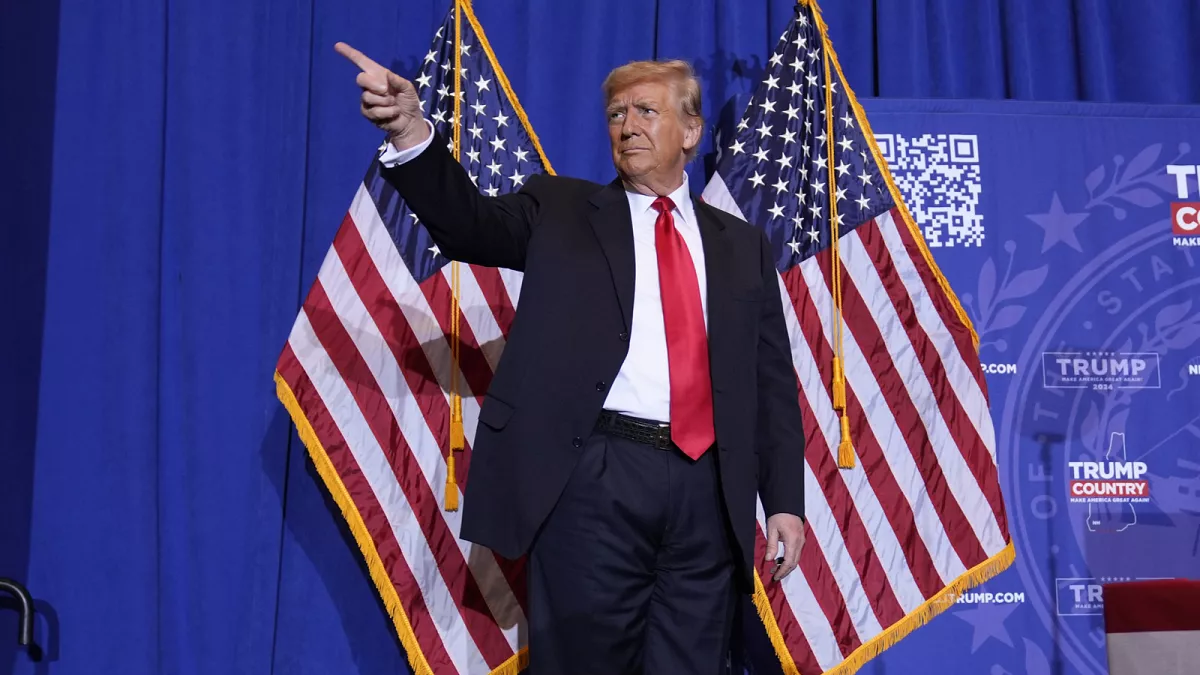Donald Trump wants to establish the United States as the global center of cryptocurrency. During a speech on July 27 at the Bitcoin 2024 conference in Nashville, Tennessee, the former president made all of these promises. However, some of the remarks made by the Republican Party nominee may have alarmed proponents of cryptocurrencies.
Though the majority of Trump’s speech was devoted to Bitcoin BTC
ticks lower at $69,588
He did provide some details, portraying it and the surrounding neighborhood as a beneficial force for America. One of his main campaign pledges was that if reelected, the US will keep its present Bitcoin holdings.
According to Trump:
“For too long, our government has violated a cardinal rule that every Bitcoiner knows by heart: never sell your Bitcoin. If I am elected, it will be the policy of my administration for the United States of America to keep 100% of all the Bitcoin the US government currently holds or acquires.”
But as co-founder and chief technology officer of Casa Jameson Lopp puts it, “there is a slight problem regarding the plan no one is acknowledging.”
Bitfinex resources
As of April 2024, the US government is said to possess 212,847 Bitcoin. As of July 28, the total estimated value is $14.4 billion.
A portion of those monies come from the bitcoin exchange Bitfinex. About 94,636 Bitcoin were taken in 2022 by the US authorities from wallets belonging to hackers who had acknowledged stealing 119,754 Bitcoin from the exchange in 2016.
US laws pertaining to asset forfeiture
It looks that the Bitfinex breach is still being investigated in 2024, but it’s not yet known exactly what the US Justice Department plans to do with the money.
There is also a dearth of legal precedent, which begs a number of problems that may take a while to be answered.
First off, especially in cases where investigations may still be continuing, victims’ rights to full compensation are usually not prioritized by federal statutes pertaining to asset forfeiture.
The Justice Department would be negligent in its prosecutorial duty if it returned part of the relevant monies before taking any further action against other suspects, for instance, if the funds were tied to other assets allegedly linked to other suspected crimes.
Additionally, there are circumstances in which it might be unlawful for US agents to give back all of the money they have taken to a single distributor. It is possible for a judge to force the US to give the impacted users their money back, with supervision from an impartial third-party custodian.
As long as the inquiry and any subsequent legal proceedings are still pending, all of this is just conjecture. However, the legalities are not the only factors involved.
Second, Trump has acknowledged that he plans to own all of the government’s Bitcoin holdings. It’s possible, though, that the president just intended to imply that he wouldn’t sell Bitcoin in order to quickly cash out the assets for fiat money.
In general, there’s no reason to believe that Trump plans to disobey any court orders directing the government to return the money.
Lastly, Trump declared unequivocally that holding all of the US’s current Bitcoin holdings will be his administration’s “policy.” This suggests that he is incorporating the Bitfinex assets, but it also suggests that the management will continue to be adaptable.
A policy forbidding such sales differs from law or an executive order that forbids the selling of cryptocurrency held by the government.
Recovery of Ulbricht fund improbable
When it comes to Ross Ulbricht, the founder of the Silk Road, things are a little more straightforward. On allegations of money laundering, hacking, and drug trafficking, Ulbricht was found guilty in 2015.
He was then given a “double life” sentence, which entails 40 years in prison.
The US government confiscated 50,591 Bitcoin in 2020, allegedly obtained through a prior hack from Ulbricht and Silk Road. These assets would account for about $3.4 billion of the US government’s current holdings as of July 28.
In his Bitcoin 2024 speech, Trump pledged to reduce Ulbricht’s sentence if reelected.
Ulbricht’s conviction would not change even in the event of a commutation. After serving his sentence, he would basically be freed, and the money—which has been classified as criminal proceeds—would be handed back to the US government.
That is not the same as a pardon, which Ulbricht would receive right away if elected, according to recent remarks made by independent presidential candidate Robert F. Kennedy Jr.
Ulbricht’s misdeeds would be officially cleared by a pardon, which would also theoretically open up a legal avenue for healing.
But according to reports, Ulbricht gave up his claim to those money in 2022 as part of an agreement with the courts to pay back his $183 million restitution obligation. This probably means that he will never be able to legally claim the Bitcoin that was taken.




